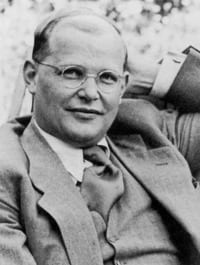So how are you doing ten days after the election? In the wee hours of the morning a week ago Wednesday, when it became official that the worst that could happen had happened, I made a decision that has turned out to be helpful and that I plan to live by for the forseeable future. Stop watching 24/7 news. Stop listening to politics podcasts while walking Bovina every morning. The amount of time and energy I spent over the past decade mainlining MSNBC and listening to podcasts such as “The Bulwark,” “Pod Save America,” “NPR Politics,” “What Now?” and so on all of a sudden seemed to have been wasted hours, days, and weeks. I love the Stoics; their first and most important moral insight is that one should not waste time and energy on things that one cannot control. I decided to take that very seriously for a while.
I was surprised to find that at least 75% of the many podcasts I listen to regularly are political in nature; cutting them out of my listening day meant spending time with “Fresh air,” Alan Alda’s “Clear and Vivid,” “Re-enchanting,” “The Bible for Normal People,” “Throughline,” “Homebrewed Christianity,” “The New Evangelicals,” and others–all of which have helped to rewire my attitudes and focus over the past ten days. I still wonder, of course, how this could have happened–but I’m not prepared to spend time listening to or viewing endless conversations about what went wrong. There will be a time for that–maybe.
I’ve found that what I’m teaching in my various classes has been helpful. For instance, Dietrich Bonhoeffer has been front and center this week in my interdisciplinary team-taught course. Bonhoeffer has actually been on my radar screen more than usual over the past two or three months. One of the podcasts I’ve been listening to is an eight-part audio documentary called “The Rise of Bonhoeffer”; the fifth episode just dropped yesterday. I listened to it while walking Bovina this morning.
As episode five of the documentary begins, Bonhoeffer has taken on the responsibility of being pastor for two German-speaking Lutheran congregations in London, England after spending several months in Germany resisting the German Protestant Church’s continuing move toward alignment with the policies of Hitler and the Nazis. Nazi authorities had their eyes on Bonhoeffer and sought to keep track of what he was up to even when not in the homeland. He was ultimately named officially by the Nazis and the German Protestant Church as an “Enemy of the People” prohibted going forward from saying anything less than full support of the Nazi regime. A few weeks later, he began his weekly sermon as follows:
The Apostle Paul wrote to the Church in Corinth, “My strength is made perfect in weakness.” Let us be truthful and not unreal. Let us ask the question, what is the meaning of weakness in this world?”
We all know that Christianity has been blamed ever since its early days for its message to the weak. Christianity is a religion of slaves of people with inferiority complexes. It owes its success only to the masses of miserable people whose weakness and misery Christianity has glorified. It was the attitude towards the problem of weakness in the world which made everybody follow us or enemies of Christianity against the new meaning which Christianity gave to the weak against the glorification of weakness. There has been the strong and indignant protest of an aristocratic philosophy of life which glorified strength and power and violence as the ultimate ideals of humanity.
We have observed this verified going on up to our present days. Christianity stands or falls with its revolutionary protest against violence, arbitrariness and pride of power and with its apologia for the weak. I feel that Christianity is rather doing too little and showing these points than doing too much. Christianity has adjusted itself much too easily to the worship of power. It should give much more offense, more shock to the world than it is doing. Christianity should take a much more definite stand for the weak than consider the potential moral right of the strong.
The full text from 2 Corinthians is “My grace is sufficient for you, for My strength is made perfect in weakness.” The critique of Christianity Bonhoeffer describes above, that “Christianity is a religion of slaves and of people with inferiority complexes,” is one that would have been very familiar to Bonhoeffer. This is the heart of Friedrich Nietzsche’s devastating critique of Christianity, that it is a religion for weaklings and for those too timid to create their own values and express their will to power. The temptation to make Christianity more attractive by fusing it with power has been strong every since its earliest days.
But as Bonhoeffer makes clear, Christianity is focused on those who are weak and is a clarion call for resistance to power. The disenfranchised, the poor, the widows, the orphans, those who have fallen through the cracks–they are the ones to whom those who follow Jesus are to pay closest attention. To the extent that those who call themselves Christian are seeking to hitch their wagon to power, to that same extent those same people are violating the very heart of what Jesus taught, lived, and died for. The story of the German Christian Chruch aligning itself with Hitle and the story of contemporary American Christians stitching their faith together with MAGA principles and Donald Trump’s agenda are the same story. As Bonhoeffer notes in his sermon, “Christianity has adjusted itself much too easily to the worship of power” when in reality, the task of the true follower of Jesus is to speak the truth of love and justice to power wherever it exists. It will be a long and difficult task.













